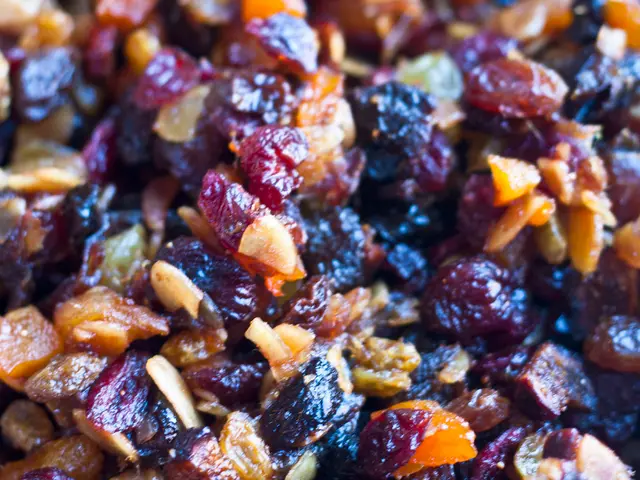Cutting Down on Sugar: A Guide to Safer Sweeteners
Guzman, a dietician from Krasnodar, shares insights on cutting back on sugar consumption.
Embrace a healthier lifestyle by reducing your sugar intake and exploring alternative sweeteners. While sugar is rampant in modern diets, excessive consumption can lead to serious health issues such as obesity, type 2 diabetes, and cognitive impairments. Here are some tips from Dr. Ekaterina Guzman, a nutritionist at the Center for Public Health and Medical Prevention of the Krasnodar Territory, to help you kickstart your healthy sugar-reduction journey.
First and foremost, lessen your sugar intake and opt for natural sweeteners like stevia, erythritol, xylitol, and Jerusalem artichoke syrup.
- Stevia: This low-calorie sweetener, 300 times sweeter than sugar, hails from the Stevia rebaudiana plant. It's great for those managing diabetes, as it does not raise blood sugar levels. Keep in mind that some studies propose that stevia might alter gut bacteria, leading to digestive difficulties [1][2].
- Erythritol: Erythritol is another low-calorie sugar alcohol that doesn't impact blood sugar. It's often used in sugar-free products for its cool sensation. However, recent studies suggest a potential link between erythritol consumption and increased risks of stroke and cardiovascular events, along with possible negative effects on brain and blood vessel health [3][5].
- Xylitol: Xylitol is yet another sugar alcohol offering low calories and no impact on blood sugar. It's known for its dental benefits, as it prevents tooth decay by curtailing the growth of bacteria in the mouth [1]. Bear in mind that xylitol can cause digestive issues, such as bloating and gas, in some individuals, especially when consumed in large quantities. It's also harmful to dogs.
- Jerusalem Artichoke Syrup: Obtained from Jerusalem artichoke tubers, this syrup is rich in inulin, supporting gut health by promoting the growth of beneficial bacteria [1]. Although it's mostly well-tolerated, some people might experience gas and bloating due to its prebiotic nature.
Don't forget about honey as a natural sweetener, but be aware of its high calorie and fructose content. Consumption should be limited, as it's not appropriate for children under one year due to the risk of botulism.
Previously, Dr. Andrei Sakharov addressed the anticipated peak of illness from West Nile fever in Russia, emphasizing the virus's danger and prevention methods.
Stay informed with the latest health news by following us on popular platforms like VKontakte, Classmates, Telegram, Viber, WhatsApp, and more. Widen your knowledge on health with #doctor #medicine discussed by @Ivanova Anastasia.
Remember, a balanced diet with minimal sweetener use is crucial for maintaining optimal health. Aim for whole foods instead of relying excessively on sweeteners. Choose natural sweeteners wisely, and cheers to a healthier lifestyle!
[1] https://www.healthline.com/nutrition/natural-sweeteners[2] https://www.mayoclinic.org/healthy-lifestyle/nutrition-and-healthy-eating/expert-answers/stevia/faq-20058017[3] https://www.ncbi.nlm.nih.gov/pmc/articles/PMC5700695/[4] https://www.ncbi.nlm.nih.gov/pmc/articles/PMC6086056/[5] https://www.health.harvard.edu/staying-healthy/are-artificial-sweeteners-really-safe
Incorporate natural sweeteners like stevia, erythritol, xylitol, and Jerusalem artichoke syrup into a healthy-diets regimen, as suggested by Dr. Ekaterina Guzman. Opt for these sugar alternatives to reduce sugar intake and promote health-and-wellness.








